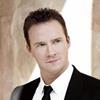Opera Singer / Pop Tenor
Professional
Channels and Networks

Russell Watson is an operatic and pop tenor, he has recorded thirteen studio albums, four compilation albums and five singles.
Although he had been singing since he was a child, he never sought a career as a professional singer.
The turning point in his career came one night at an engagement at Wigan Road Working Men's Club, when the secretary suggested that he try singing Nessun dorma from Puccini's Turandot. Although Russell Watson was not a classically trained singer, he continued to perform the aria, and was encouraged to try other classical pieces. In 1990 he won a Search for a Star contest organised by Manchester's Piccadilly Radio.
When you're going up for the top notes, the psychology of singing is just as important as the physiology. Especially when you know that you're right at the top of your range. You start taking yourself out of the comfort zone when you're going for the big notes, the money notes, like the ones at the end of Nessun Dorma, the top-B natural - they are the ones people want to hear rattling round the Albert Hall. All the rest of it is the build up.
In 1999 he sang God Save the Queen at the Rugby league Challenge Cup Final at Wembley Stadium, then finally sang at Old Trafford before the last match of the Premiership season between Manchester United and Tottenham Hotspur. After the game, when his team had won the league championship, he returned to the pitch to sing the Freddie Mercury and Montserrat Caballé song Barcelona, during which he tore off his dinner jacket to reveal a Manchester United shirt.
This appearance sealed his success, and only a week later he was invited to sing a full set at the final of the UEFA Champions League in Barcelona between United and Bayern Munich, duetting with Montserrat Caballé.
Prior to the formation of Velvet Revolver, Watson was asked by Slash (former guitarist of Guns N' Roses and currently in Velvet Revolver) whether he would be their singer. Watson turned down this opportunity, at least for the time being, to concentrate on his solo career.
An enterprising producer introduced him to Decca, and there followed another of those moments that belong to Broadway fantasy rather than Salford reality.
There were eight or nine executives from Decca, and they asked me if I'd brought a CD or video for them to hear. I said, 'No, but I have brought my voice.' I burst into O Sole Mio, holding the top note and, like the cheeky bugger I am, looking at my watch at the same time. I held it longer than I had ever held it before. Their jaws dropped gradually to the floor and that was it: I walked out of the office and within an hour there was a fax back in Manchester with an offer of a five-album deal.
Watson's debut album, The Voice, was released in May 2001. A mixture of operatic arias and covers of pop songs, it topped the UK Classical Chart and eventually reached number five in the UK Albums Chart. Later, when released in the United States, the album took the number one spot and made history as the first time a British artist had held both the US and UK classical number one.
When I walked into the studio for the first time in 1999 with the Royal Philharmonic, I was petrified. I've been all over the bloody place since then and worked with some of the best orchestras on the planet, so I'm more experienced.
The self-styled People's Tenor, who is also known as The Voice after his first album, won the Album of the Year at the Classical BRIT Awards in both 2001 and 2002, also collecting awards for Best-Selling Debut Album (2001) and Best-Selling Album (2002).
In September 2006, Watson flew to Los Angeles to record his album That's Life. On the flight, he told his producer that he was experiencing terrible pressure inside his skull. When they landed, his producer suggested a game of tennis to clear his head. Watson could not see the ball at all. After a visit to the Cedars-Sinai Medical Center and an MRI scan, he was advised that he had a developing pituitary adenoma, which was the size of two golf balls.
Upon recovering, Watson returned to the recording studio to finish his album That's Life. Originally due out in November 2006, it was subsequently released on 5 March 2007. On 19 May 2007, Watson sang the God Save the Queen at the 2007 FA Cup Final.
While in the middle of the studio recording of his album Outside In on 24 October 2007 Watson suddenly became incapacitated, with multiple symptoms including a dramatic deterioration of vision. An MRI scan showed he had a regrowth of his tumour with bleeding into his brain.
Once Watson finished radiotherapy in 2008 he decided to embark on a return to music. He soon found that his treatment had given him not just a fresh outlook on the world, but a new, deeper, richer voice.
The tumour could have been growing for 10–15 years in my nasal cavity, so when I had cut it out I went from a V8 to a V12!
Russell's albums include: The Voice (2000), Encore (2001), Reprise (2002), Amore Musica (2004), That's Life (2007), Outside In (2007), People Get Ready (2008), La Voce (2010), Anthems - Music To Inspire A Nation (2012), Only One Man (2013), True Stories (2016), In Harmony (2018 - with Aled Jones) and Back in Harmony (2019 - with Aled Jones).
To learn more about Russell Watson click and explore any of his media channels and network links in the tool-bar above.



